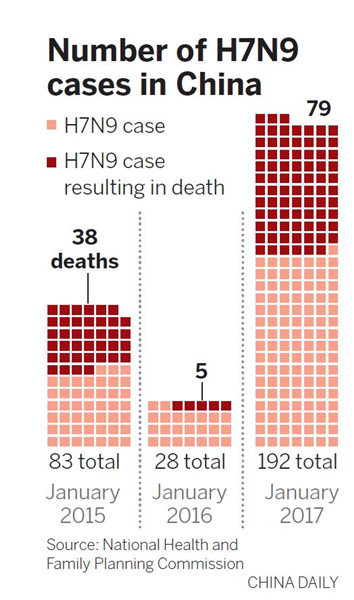Bike-sharing apps vow to prevent underage users
|
|
|
A girl poses for a photo while sitting in the basket of a bike owned by Mobike, a bike-sharing service provider, at the Bund in Shanghai on New Year’s Eve.[Gao Erqiang / China Daily]
|
The operators of three major bike-sharing apps have pledged to make their services less accessible to children in response to Shanghai traffic and education authorities’ calls for improved safety.
China’s traffic law bars children under the age of 12 from riding bikes and tricycles on roads, yet a rapid rise in the popularity of shared bikes in cities nationwide has resulted in more young people breaking that law.
After meeting with Shanghai officials on Saturday, operators of Mobike, Ofo and Bluegogo promised to revamp equipment and security procedures to block underage users from accessing their bikes.
“We will replace the mechanical locks on our bikes with smart ones, which will help put an end to illegal use by children,” said Ren Baoluan, Ofo’s public relations manager.
Netizens have said that Ofo’s bikes are easy for children to access because their locks require only a four-digit combination, which some users forget to scramble when they finish their journey, meaning the bikes can then be ridden for free.
Ren said that with smart locks, which Mobike and Bluegogo bikes already have, users are only able to unlock a bike after receiving a dynamic password on their smartphone, and can only end the service once a bike is properly locked.
The companies said they will also jointly assign specialists to patrol key areas such as schools and parks, and cooperate with neighborhood committees to crack down on underage cyclists.
“We will place a warning sign on each of our bikes,” Ren added.
Authorities responded to the issue after receiving complaints that children had been seen racing bikes owned by the apps, which, in some cases, had resulted in injuries.
Statistics from the Shanghai Education Commission show that 245 non-motor-vehicle-related traffic accidents involving children under the age of 12 were reported in the city last year, causing one fatality and 85 injuries.
The total number of shared bikes – which are easy to rent through smartphone apps and can be parked at users’ convenience – in Shanghai, Beijing and Guangzhou has surpassed 100,000.
Cao Guoxing, head of public relations at Mobike, said that while backing efforts to prevent children from riding bikes on the road alone, they encourage children to learn how to cycle when accompanied by adults in a safe space.

